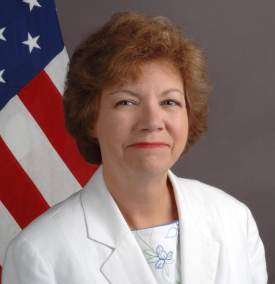KP Continues Search for new Definition of Conflict Diamonds
August 09, 12
 KP Chair Milovanovic is pushing ahead an updated definition of Conflict Diamonds |
(IDEX Online News) – The Kimberley Process is considering new definitions of conflict, and human rights issues are "clearly implicated in such situations," according to a FAQ accompanying a statement by the KP chair, Ambassador Gillian Milovanovic.
According to the document, "An updated definition could apply to diamond-related conflicts that meet generally agreed-upon standards of armed conflicts, such as a resort to armed force between States or protracted armed violence between governmental authorities and organized armed groups or between such groups within a State."
"This would also apply to circumstances of systematic violence, such as protracted and violent internal disturbances and tensions, grave acts of violence or acts of a similar nature over an extended period."
The FAQ goes on to clarify that "Such a definition would not apply to individual or isolated cases. Neither would this apply to violence that is unrelated to diamonds."
This clarification is apparently in response to concerns by countries worried that internal issues may be used as an excuse to exclude them from KP on political grounds. Among them are most large diamond countries – Russia, China, Israel and most African countries – all mine, trade or manufacture diamonds.
Milovanovic states that a number of ideas were presented at the Intersessional, adding that she anticipate that "others will surface" by August 24 deadline.
The
The U.S. is therefore trying to propel the issue to the top of the agenda, working closely with the next KP chair, South Africa, with the aim of seeing this completed next year.
Milovanovic added that she is also considering an option to ban from KP regions, rather than countries, in conflict situations. "This would build on a range of KP prec
Accordingly, "The KP does not need to exclude a Participant from the KPCS entirely in order to adopt this type of change."
Some of the suggestion are controversial, others seem to raise more questions, for example, KP certificates were until now based on countries. How will customs officials know how to handle a parcel of rough from a country that has one region under sanctions, and another free to trade.